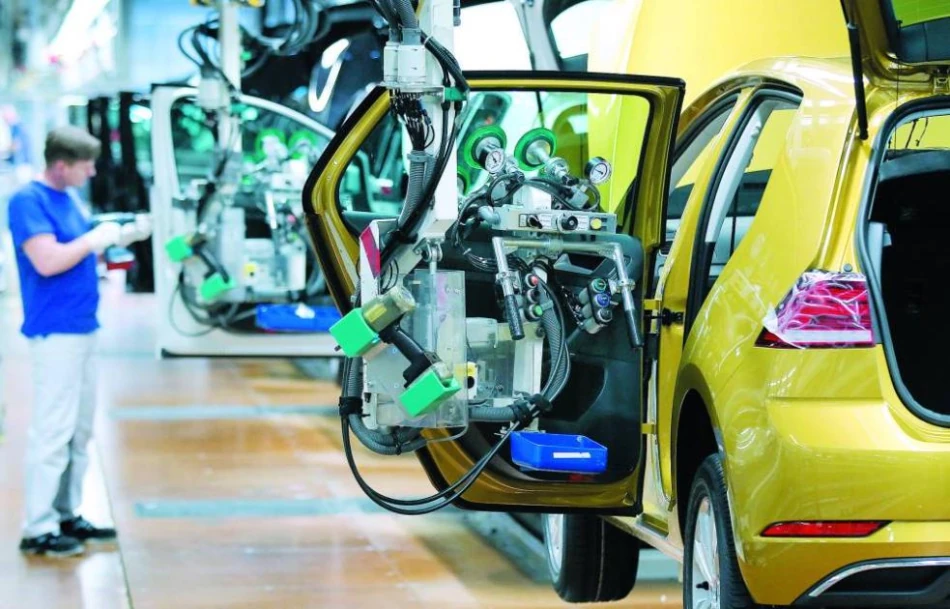
German Car Sales Bounce Back in July: A Promising Automotive Market Resurgence
German Car Market Shows Signs of Recovery Despite Tesla's Sharp Decline and Chinese Competition
Germany's automotive sector experienced a notable upturn in July 2024, driven by a remarkable 58% surge in electric vehicle sales, even as the market remains fragile amid broader economic uncertainty. While overall car registrations jumped 11% year-on-year to 264,802 vehicles, the sector's underlying weakness persists, with year-to-date figures still down 2.5% and Tesla suffering a dramatic 55% sales collapse.
Electric Vehicle Momentum Masks Deeper Market Struggles
The July recovery tells a complex story of Germany's transition to electric mobility. Electric vehicles captured 18.4% of total registrations, matching June levels and the 2023 average—a significant rebound from the 13.5% low point earlier in 2024. This marks the seventh consecutive month of EV growth following a sharp downturn caused by the government's abrupt termination of purchase subsidies in December 2023.
The surge was particularly pronounced in the SUV segment, which grew 24% and continues to dominate German preferences. This trend mirrors patterns across European markets, where consumers increasingly favor larger electric vehicles despite higher price points.
Policy Shifts Drive Market Volatility
Germany's experience illustrates the critical role of government incentives in EV adoption. The subsidy withdrawal created a market shock that took months to overcome, demonstrating how policy uncertainty can derail transition momentum. This contrasts sharply with China's sustained support for electric mobility and the US Inflation Reduction Act's long-term commitment to EV incentives.
Tesla's German Troubles Reflect Broader Brand Challenges
Tesla's precipitous decline to just 1,110 units sold in July—representing merely 2.2% of Germany's EV market—signals deeper issues beyond typical market fluctuations. The company's struggles appear linked to reputational damage from CEO Elon Musk's controversial political positions, particularly his brief alignment with Donald Trump in late May 2024.
This decline is particularly striking given Tesla's previous dominance in European EV markets. The German market, traditionally receptive to premium electric vehicles, now appears to be rejecting the brand despite its technological credentials. Similar patterns have emerged across multiple European countries, suggesting a coordinated consumer response to Musk's political activities.
Chinese Automakers Capitalize on Market Disruption
While Tesla retreats, Chinese manufacturer BYD has aggressively expanded its German footprint, selling 7,449 vehicles in the first seven months of 2024—a staggering 420% increase year-over-year. This dramatic growth reflects broader Chinese automotive ambitions in Europe and highlights how quickly market dynamics can shift in the EV sector.
BYD's success demonstrates the effectiveness of competitive pricing and rapidly improving technology. The company's vertical integration strategy, controlling everything from battery production to vehicle assembly, allows for cost advantages that traditional European manufacturers struggle to match.
Economic Headwinds Challenge Recovery Sustainability
Despite July's positive figures, analysts remain cautious about the market's trajectory. Constantin M. Gall from Ernst & Young notes that both individual consumers and corporate buyers are delaying purchases amid economic uncertainty—a pattern consistent with Germany's broader industrial slowdown.
The 2.5% year-to-date decline underscores the market's fragility. July's gains were partially inflated by regulatory changes that pushed forward some registrations from June, suggesting the underlying recovery may be less robust than headline figures indicate.
Implications for Investors and Industry
For automotive investors, Germany's mixed signals reflect the sector's transitional challenges. Traditional manufacturers like Volkswagen and BMW face pressure from both Chinese competitors and changing consumer preferences, while regulatory uncertainty continues to complicate long-term planning.
The market's trajectory will likely depend on Germany's broader economic recovery and potential new EV incentive programs. With the country's industrial sector struggling and energy costs elevated, automotive demand may remain constrained even as electric vehicle adoption accelerates.
Most Viewed News

 Omar Rahman
Omar Rahman






